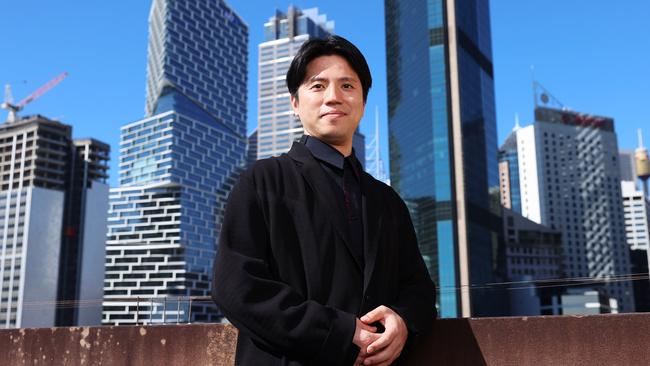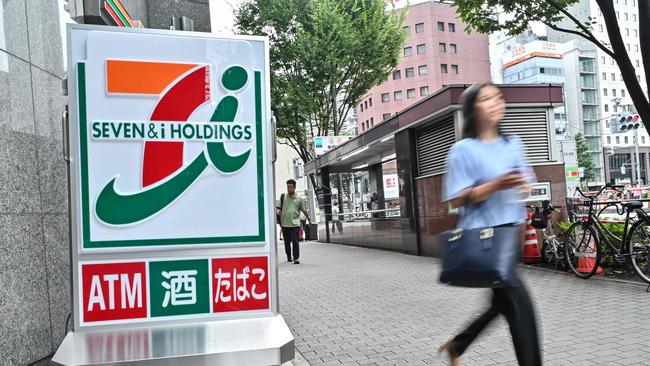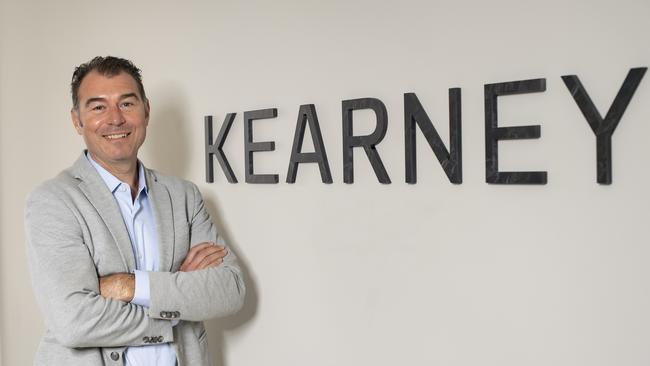Kearney Asia Pacific chair charts course for Japanese investment in Australia
Japanese investors are looking at Australia’s economic story of growth and stability as an opportunity, and in recent years inbound investments have surged.

Japanese companies want to invest in Australia: it’s growing, wealthy, safe and stable. The only issue is that it isn’t Japan.
Enter Kearney Asia Pacific chair Shigeru Sekinada, who has toured Australia as the career consultant looks to build bridges between Japanese corporate giants and local business.
Kearney is a standout among the crowded field of management consultants; the global firm – a spin-off of McKinsey – offers management consulting avoiding some of the more complicated endeavours of the larger firms.
The Australian arm of the firm is slim but growing strongly; with 20 partners and a team of 175, Kearney has been winning business and boosting revenues, up 45 per cent over the past year.
The global firm, of more than 5000 staff, launched its first forays into Japan in 1972.
Mr Sekinada leads the firm’s 16 offices spread across the Asia Pacific, with global chair Bob Willen handing the Japanese consultant the task of growing the business across the region when he was appointed in May.
Mr Sekinada said he had developed a number of clients in his time in the business, with Kearney supporting 20 of the largest Japanese corporations and 200 rising companies.
But he acknowledged he did not know Australian markets as intimately as Japan’s, noting his tour of the region after taking on the top job had been an effort in understanding the opportunities available for the firm and clients.
And many Japanese companies had warned of increasing concern over geopolitical risks in the region and in particular China, Mr Sekinada told The Australian.
“They want to mitigate the risk,” he said.
It was one factor contributing to Australia’s growing popularity.

Mr Sekinada pointed to the experience of Japanese beer giant Suntory, which sold 50 per cent of its local brand to Chinese brewing giant Tsingtao in 2015, warning it would hold off further investments in the country amid uncertainty.
But the unruly and complex economic environment in India and Indonesia, two major markets in the Asia Pacific, has proved a turn-off for many Japanese management teams.
“That’s why Japanese CEOs tend to think about Australian market, US market, as better markets,” Mr Sekinada said.
Japanese inbound investments into Australia have surged in recent years, hitting $133.8bn in 2024.
Mr Sekinada said Australia’s growing population and growing middle class was also a drawcard to many Japanese companies, which were often pitched at the mid-market.
China’s economic experience, in which a ballooning of the ultra-rich has left a lacking number of middle class, means companies pitching products to the mid-market are struggling to sell.
Mr Sekinada said Japanese investors were interested in an array of Australian industries, from mining to energy, property, financial services, the food industry, and consumer health supplements and beauty products.
The Japanese division of convenience giant 7-Eleven acquired the Australian business in a $1.71bn deal last year that handed it control of more than 750 local stores. This comes after the $1.9bn buyout of Australian vitamins giant Blackmores by Kirin.

But Mr Sekinada warned there were issues Japanese investors faced with Australian assets, including a mismatch in leadership and communications expectations.
“Japan is a very high-context culture, so if I as CEO say something that is not a direct communication, it’s a very indirect communication, you need to do something,” he said. “But the typical Australian or US needs a more direct culture. It’s a direction or it’s not a direction.”
Kearney ANZ managing partner Adam Dixon said Australian leadership teams also struggled to navigate relationships with Japanese management.
“It’s fair to say that a lot of Japanese companies are still figuring our how to effectively manage assets in Australia and get returns, and that historically there have been some governance challenges,” he said.
Japan Post invested $6.5bn in purchasing Australian logistics firm Toll, before surrendering after years of poor performance and selling the business for just $7.8m.
Mr Dixon said there were challenges around language and expectations.
“Japanese companies tend to be empowering, in the sense of the kind of boundaries we want you to operate within, then some leadership teams struggle against the expectations,” he said.
Instead of resorting to the typical command and control model, Japanese companies often allowed local leaders autonomy to run the business as they see fit.
Mr Dixon said Australia offered large companies the opportunity to experiment and innovate given the size of the market and its comparative wealth.
He said the firm had recently dealt with a major global brand in the consumer goods space looking to prototype products. “It’s a lower-cost innovation environment here in Australia,” he said.






To join the conversation, please log in. Don't have an account? Register
Join the conversation, you are commenting as Logout